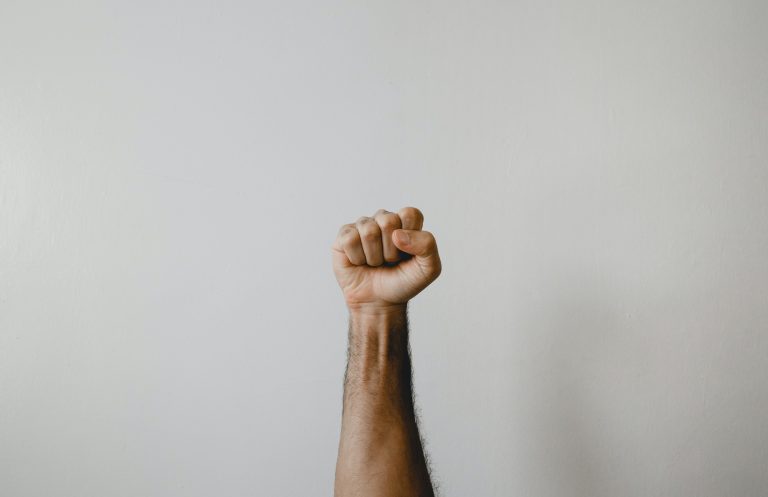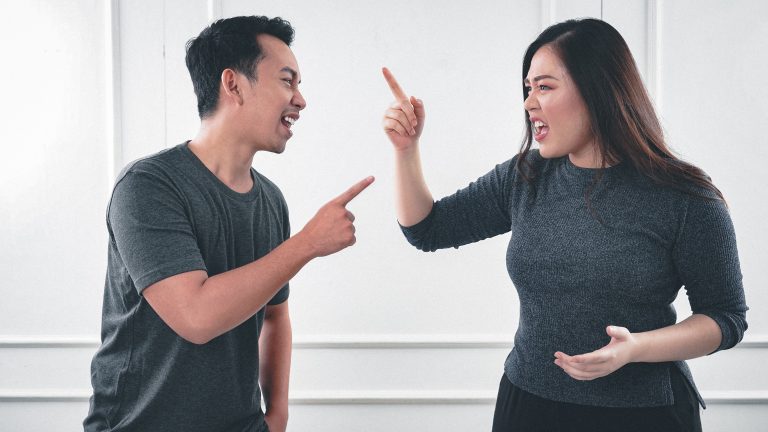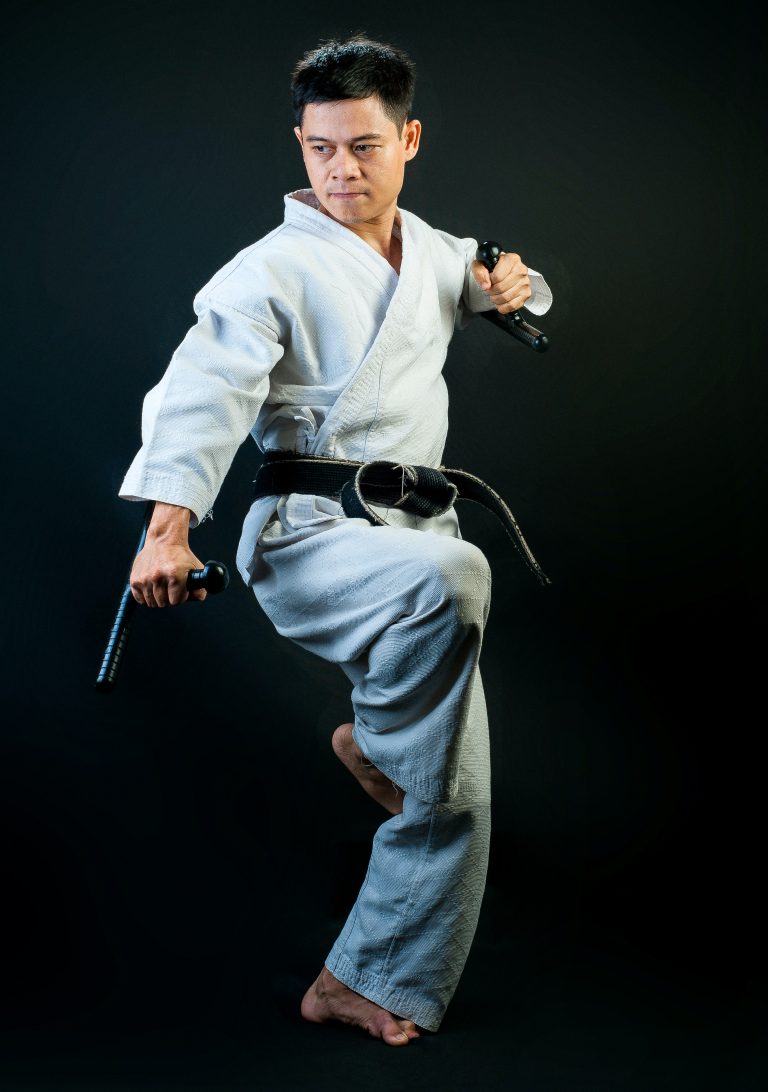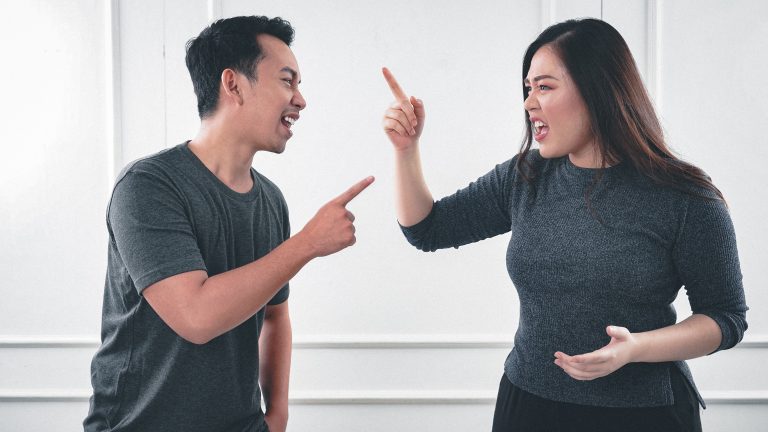What Does Karate Mean to Me?
Karate is a martial art that has been practiced for centuries, and it has gained popularity all over the world. It is a discipline that requires dedication, sacrifice, and commitment. To some, karate is a form of self-defense, while to others, it is a way of life. For me, karate has been nothing short of a transformative experience. It has helped me acquire skills and qualities that have had a profound impact on my physical, mental, and emotional well-being. In this blog post, I will be sharing my personal journey with karate and what it means to me.
The Beginning of My Karate Journey
I was introduced to karate when I was only seven years old. My parents wanted me to learn self-defense skills, and so they enrolled me in a local karate school. Initially, I did not know what to expect, but I soon discovered that karate was much more than just learning how to punch and kick.
The first thing I learned in karate was discipline. We were taught to bow before stepping onto the training floor and to bow when leaving. We were also expected to show respect to our instructors and fellow students. This principle of discipline carried through everything we did in class, from the way we stood, moved, and attacked to how we communicated with each other.
The second thing I learned was focus. Karate requires full concentration, focusing on the technique, and its execution. In practicing kata, we were taught how to develop a laser-like focus that would help us block out distractions and maintain our concentration. These skills have proved helpful in other areas of my life, especially my studies and my career.
The Benefits of Karate
Over the years, I have come to appreciate the numerous benefits that come with practicing karate. Here are a few of the benefits that I have experienced.
Physical Fitness
Karate is a physically demanding discipline that requires strength, flexibility, and endurance. Practicing karate on a regular basis has helped me improve my cardiovascular health, increase my strength and flexibility, and maintain a healthy weight.
Self-Defense Skills
One of the primary reasons why people study karate is to acquire self-defense skills. Knowing how to defend oneself can provide a sense of security and confidence. With karate, I have learned how to block, punch, kick, and apply joint locks and pressure points. These skills have come in handy in situations where I have felt threatened.
Life Skills
Karate teaches valuable life skills such as discipline, focus, perseverance, and respect. These principles have helped me in other areas of my life, including my education, career, and relationships. I have learned to set goals, work hard to achieve them, and to treat others with respect.
The Importance of a Good Instructor
Having a good instructor is critical in one’s karate journey. A good instructor should be knowledgeable, patient, and supportive. My instructor has been a source of inspiration, guidance, and motivation. He leads by example, demonstrating the principles of karate both in and outside of the dojo.
The Challenges of Karate
Karate is not without its challenges. The journey requires dedication, sacrifice, and hard work. I have encountered challenges when learning new techniques, in kumite (sparring) and in competing. However, these challenges have helped me develop my character and my personal growth.
The Future of My Karate Journey
Karate has been a part of my life for over two decades now, and I plan to continue to practice it for years to come. Apart from honing my skills, I hope to help others discover the benefits of karate, and to teach them valuable life skills that will help them on their own journey.
What Does Karate Mean to Me: Frequently Asked Questions
Karate is a popular martial art that originated in Japan in the early 20th century. Practitioners of karate use their entire body in strikes and kicks to defend themselves, and it is also seen as a way of developing physical and mental discipline.
Through the practice of karate, individuals gain specific skills, values, and habits that carry over into all other aspects of their lives. Here are the answers to some frequently asked questions regarding what karate means to practitioners.
1. What drew you to Karate?
The reasons why people get into karate are varied; however, most are drawn to the mental and physical discipline that comes with the practice. Some people may be looking for a way to improve their fitness and health, while others may wish to learn self-defense. Whatever the reason, karate offers a unique blend of mental and physical conditioning that provides many benefits.
2. What is the philosophy behind Karate?
Karate is grounded in values like discipline, patience, and hard work. The philosophy of karate is to develop a person’s character to be suitable for life and to defend oneself during physical confrontations, with karateka (karate practitioners) seeking to transcend physical prowess and become mentally strong, too.
3. What are the benefits of practicing Karate?
Regular practice of karate can lead to significant improvements in an individual’s physical and mental well-being. Some benefits of practicing karate include:
– Improved flexibility and strength
– Increased cardiovascular health
– Greater self-awareness
– Increased focus and concentration
– Discipline and self-control
– Self-confidence and self-esteem
– Stress and anxiety relief
4. What is the difference between traditional and modern Karate?
Traditional karate emphasizes the development of the whole person. Training includes kihon (basic techniques), kata (forms), and kumite (sparring). Focus is generally on developing discipline, patience, and hard work, and emphasis is placed on the cultivation of a peaceful and harmonious society. Modern karate has more of a focus on sport and competition and emphasizes speed, power, and strength.
5. What is the typical structure of a Karate class?
Karate classes typically begin with a warm-up to get the body going and to help practitioners avoid injury during training. Following warm-up exercises, the class will move on to work on specific techniques, such as punches, kicks, and strikes. Classes may also include training in kata and kumite. Finally, classes will end with a cooldown and stretching to help the body recover from the workout.
6. How long does it take to become good at Karate?
It takes time and dedication to become skilled in karate. Becoming a black belt typically takes around three to five years, depending on the intensity and frequency of training. However, the benefits of karate can be felt after just a few months of consistent training, both physically and mentally.
7. Is Karate suitable for everyone?
Karate is a martial art that can be practiced by people of all ages, genders, and fitness levels. The movements and techniques can be adapted to suit individual needs and abilities, making it an ideal form of exercise for people of different physical and mental capacities.
How to Understand and Appreciate the Meaning of Karate
As a martial arts form, Karate has been practiced and revered all around the world for centuries. Many people wonder what Karate means, and as a Karate practitioner myself, I understand how important it is to grasp the meaning of this art form. In this guide, I’ll take you through step-by-step instructions on how to understand and appreciate the meaning of Karate.
Step 1: Learn the History of Karate
To truly understand the meaning of Karate, it’s essential to have knowledge about its history. Karate originated from the Ryukyu Kingdom, an island in Okinawa, Japan, during the late 19th century. At that time, it was considered a form of self-defense technique used by the warrior class in Okinawa, known as samurai.
As Karate continued to evolve, it became more focused on spiritual and philosophical principles, emphasizing self-improvement rather than aggression or aggression towards others. As you study the history of Karate, you’ll also learn that many of the principles and techniques of Karate practice originated from Chinese martial arts, including Kung Fu.
Step 2: Understand the Five Elements of Karate
There are five essential elements of Karate: Kata, Kihon, Kumite, Bunkai, and Self-Defense. Each of these elements forms the foundation of Karate practice and understanding.
– Kata: These are traditional, pre-arranged forms of attack and defense that students practice repeatedly. Kata focus on the development of speed, strength, balance, and coordination.
– Kihon: This is the base of Karate practice, which involves mastering basic movements, including punches, kicks, and blocks. Kihon helps develop strength, stability, and balance, and is typically practiced through drills.
– Kumite: This is the art of sparring against an opponent, involving both offensive and defensive movements. Kumite is a critical part of Karate practice, helping students develop quick reflexes, timing, and adaptability.
– Bunkai: These are the practical applications of movements found in Kata forms. Essentially, Bunkai breaks down the traditional moves and teaches students how to apply them to real-life situations.
– Self-Defense: This aspect of Karate emphasizes techniques that can be used in real-life situations to defend oneself from an attacker.
Step 3: Understand the Principles of Karate
Karate principles come from centuries of rigorous training, and the goal is to develop the body, breath, and mind to improve overall health and wellbeing. Here are some of the key principles you should know:
– Discipline: Karate emphasizes mental strength, which means being disciplined enough to approach training with a positive attitude and a desire to learn.
– Focus: Karate stresses the importance of mental focus and being alert during practice, which helps develop concentration skills and promotes mental clarity.
– Respect: This is an integral part of Karate principles, which means treating others with kindness, respect, and courtesy.
– Perseverance: Karate training is often challenging, and developing perseverance is an essential aspect of this martial art form.
– Humility: Karate teaches students the importance of being humble, knowing their limitations, and embracing the learning process.
Step 4: Embrace the Karate Philosophy
As you learn the history, techniques, and principles of Karate, it’s important to embrace the philosophy behind this martial arts form. Karate teaches us how to find harmony and balance in our lives, both physically and mentally.
Through Karate practice, we can develop self-confidence, balance, and discipline, all of which carry over into our daily lives. Karate is not merely about fighting, but rather it’s about striving to live a life based on the principles of respect, humility, and self-awareness.
Conclusion
Karate has always been more than just a physical activity – it is a way of life. By following the above steps, you can begin to appreciate and understand the true meaning of Karate. Whether you are practicing Karate for self-defense or self-improvement, by focusing on principles of discipline, focus, respect, perseverance, and humility, you can improve both your physical and mental wellbeing. Keep practicing, and with time, you’ll develop a deep sense of appreciation and understanding for this deep and meaningful martial art.
Inhaltsverzeichnis






